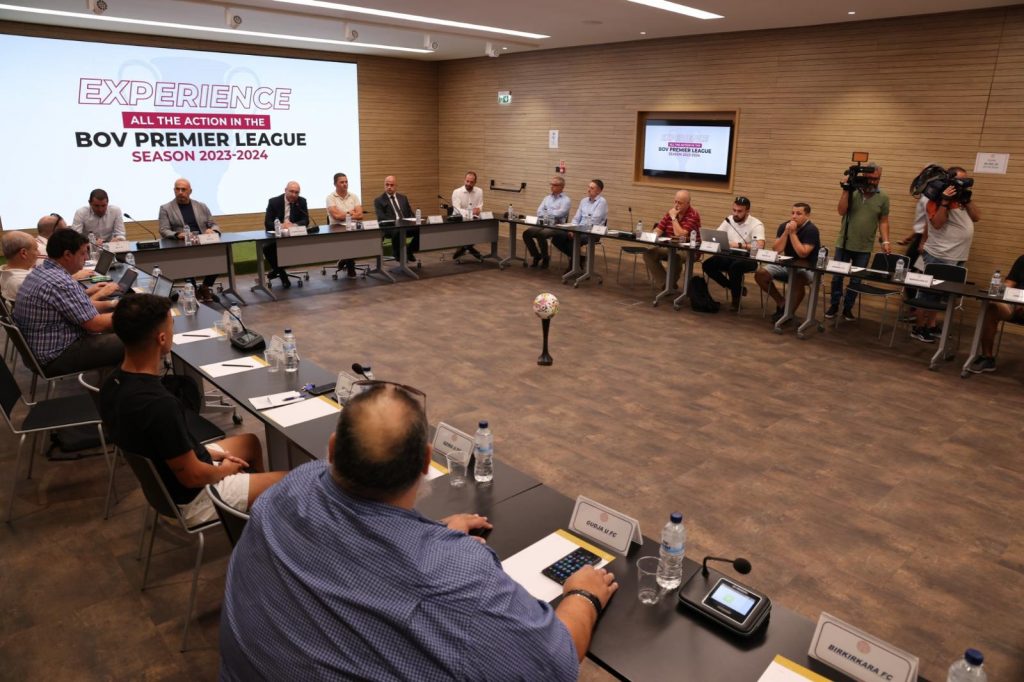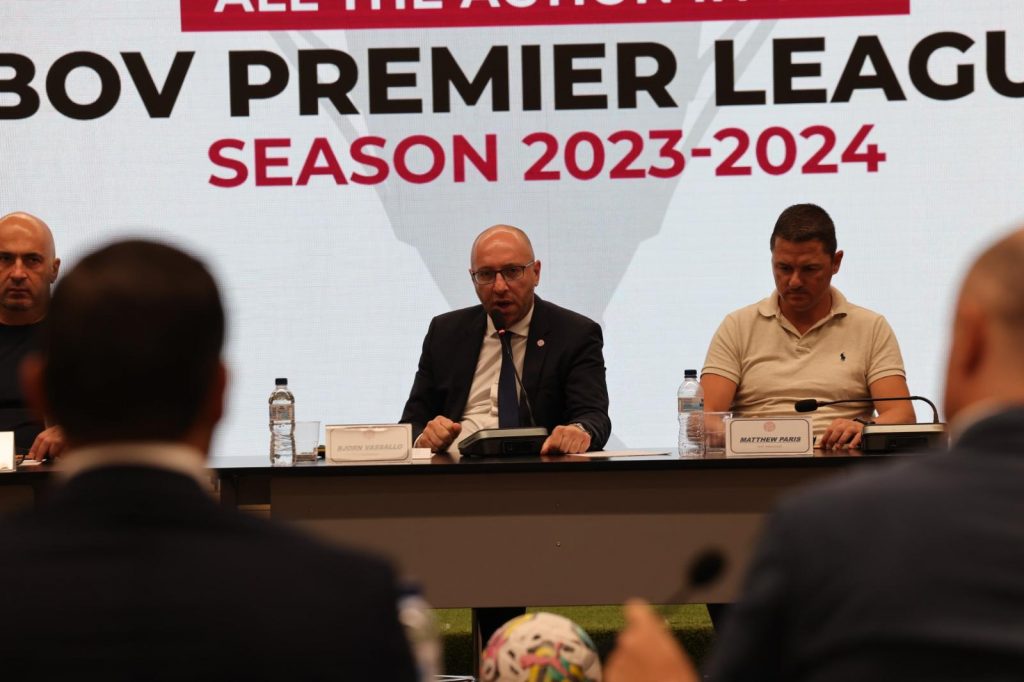The Malta FA, following a thorough consultation with football stakeholders, including the Malta Premier League (MPL), will bring about significant changes in the sporting regulatory for the 14 clubs competing in the Premier League for the upcoming 2023/24 football season. The announcement was made by Malta FA President Bjorn Vassallo and MPL Chairman Dr Joseph Muscat during a press briefing held on Tuesday morning at the Centenary Hall.
The changes are designed to enhance the competitive spirit and overall quality of the league, while also fostering the development of home-grown players.
Key Highlights of the 2023/24 Premier League Calendar, Composition and Format:
• The BOV Premier League will consist of 14 teams, each participating in a total of 26 matches in a round-robin format with a Christmas Break scheduled between the 18th of December and the 5th of January.
• Matches will be spread across 25 weekends and 1 midweek matchday.
• A total of 182 matches will be played across three stadiums (National Stadium, Tony Bezzina Stadium, Centenary Stadium) with the action set to kick off on September 15th.
• The season will culminate in the crowning of one league winner. Additionally, four teams will be automatically relegated to the BOV Challenge League, creating a thrilling competition for both ends of the league table.
Updated Regulatory Framework
Non-Home Grown Players: New regulations concerning the presence of non-home grown players on the field will be set in place. Starting from this season, each Premier League club will be allowed to have 8 non-home grown players on the pitch at any one time, compared to the previous limit of 7 players. Premier League clubs can now register 14 non-home grown players and an additional 2 more, subject that these two are loaned-out, as opposed to the previous limit of 12 and 1 loaned-out player. The clubs’ Squad List is also being increased from a total 24 players to 28 players.
Team Sheet and On-Pitch Players: While each Premier League Club may include up to 11 non-homegrown players on the team sheet, up from the previous limit of 9, the number of non-homegrown players on the team sheet cannot exceed the number of homegrown players. This adjustment aims to provide teams with greater flexibility and tactical options but also of safeguarding the locally trained players.
Home Grown Incentive Fund: To encourage the development and inclusion of homegrown talent, a dedicated incentive fund of €300,000 has been established. This fund will be distributed based on the utilization of homegrown players during matches. Clubs will receive an allocation if they field a homegrown goalkeeper born in 2000 or later, or a player born in 2003 or later, within the agreed parameters.
Malta FA and MPL sign MoU for 2023/24
The Malta FA and MPL are committed to maximise the value of the National League’s topmost division by bringing alive new ideas, by revamping the competition and by creating more fan engagement. These changes represent a progressive step towards achieving important strategic goals. At present the Association and the League are in ongoing discussions to enter in a joint venture which will see them manage the Premier League jointly for five consecutive football seasons. This important semi- privatisation of the League will see more important changes being proposed especially in the branding and commercial aspects of the Premier League. In the meantime the MFA and MPL have signed an MoU, with rights and obligations for both sides, in order to cover the 2023-24 transitional period.
Photos courtesy of domenic aquilina





MFA President and MPL Chairman quotes
Malta FA President, Bjorn Vassallo, stressed that ‘there is clearly an opportunity here. Young home grown players have consistently shown that they are ready to step up to first-team football and therefore deserve a better chance in our top league. They are very motivated and eager to show their capabilities.
“They have the quality… they may lack experience but this is normal in the initial stages of their senior football career. If the clubs believe and invest more in them, these youngsters will surely repay their faith.
“The newly-introduced incentive scheme will help our clubs to make the right decisions and they will be rewarded for it said Vassallo.”
MPL Chairman, Dr Joseph Muscat said that ‘the MPL clubs are going through a learning curve of working together with the ultimate aim of having a more attractive, competitive and sustainable league. This requires resolve and responsibility by all. The rules being introduced today are a small but important step towards this aim.’

